BTO publishes various reports, from those covering the annual results of core surveys, through scientific studies, and on to those produced in partnership with other organisations. Many of these are published as BTO Research Reports. You can access all of our reports from here, though note that we are currently updating the reports section, working backwards through time to bring all of the report pages into a consistent format. You can read our Annual Report and Accounts in the Governance section.
Search settings
Seabird Population Trends and Causes of Change: 1986–2023
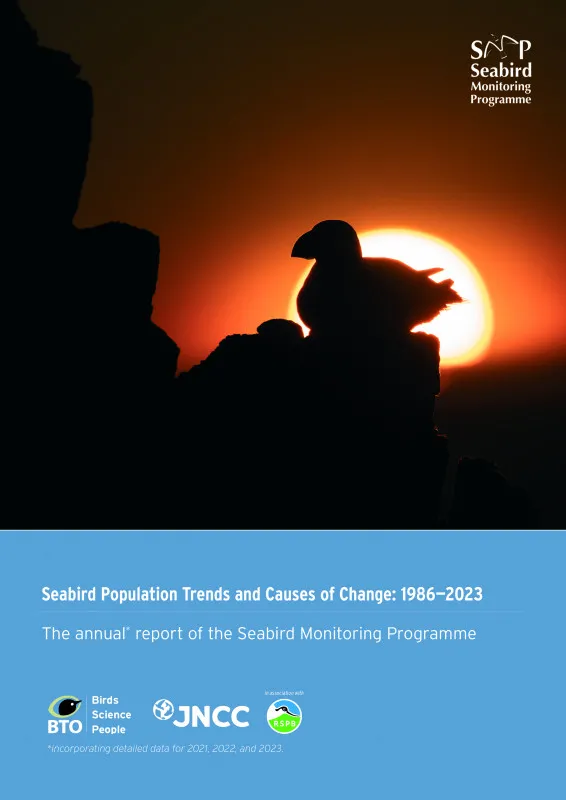
This report presents the latest seabird population trends in breeding abundance and productivity using data from the Seabird Monitoring Programme (SMP).The report documents changes in the abundance and productivity of breeding seabird species in Britain and Ireland from 1986 to 2023, and provides a detailed account of the 2021, 2022 and 2023 breeding seasons.This report includes both inland and coastal populations and trends from the Channel Islands, England, Isle of Man, Northern Ireland, Scotland, Wales and the Republic of Ireland, which are presented where sufficient data are available. The results from this report are used more broadly to assess the health of the wider environment, to inform policy and for conservation action.
21.11.24
Reports
Watching Out for Waders: The Working for Waders Nest Camera Project
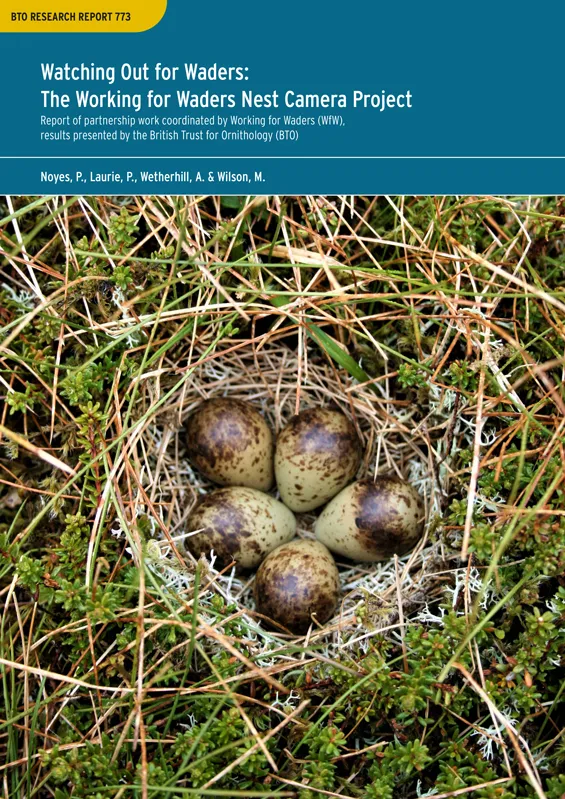
This report presents the results of a trial involving the use of trail cameras by land managers and other wader conservation stakeholders to monitor the outcome of wader nesting attempts. It presents the results of the trial and assesses the potential for the project to improve wader conservation knowledge and management.
04.10.24
Reports
Annual Report & Accounts 2023/24
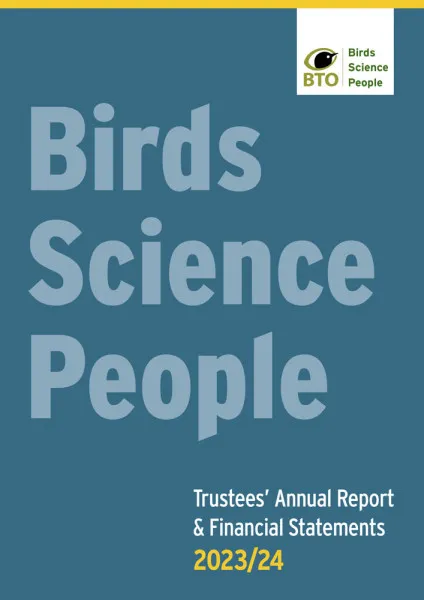
At a glance:During 2023—24 there were almost 9,000 downloads of BTO data from NBN Atlas, cumulatively totalling over 400 million records, and used for education, research and commercial purposes.Volunteers contributed 2,102,943 hours to our work in 2023, an increase of 7% compared with 2022 and the equivalent of 1,292 staff years and £42.6 million, an incredible contribution and powerful resourceThe 2024 Youth Summit, a collaboration between BTO’s Youth Advisory Panel, RSPB’s Youth Council, and WWF-UK’s Youth Ambassadors, empowered and inspired young people and organisations to do more.Thanks to our members, funders and supporters, £6.2 million was spent during the year carrying out, supporting and communicating our ornithological research and delivering engagement.During 2023—24, we received just over £2 million through gifts in Wills, something for which we are phenomenally grateful.Some 8,890 BTO volunteers have contributed to the BTO/JNCC/RSPB Breeding Bird Survey, which celebrated 30 years of survey visits in 2024 and now covers nearly 4,000 sites annually.
Download the 2023/24 report (PDF)
30.09.24
Reports
Trial of the use of silicone cord leg-loop harnesses on Black-legged Kittiwake during the 2023 breeding season
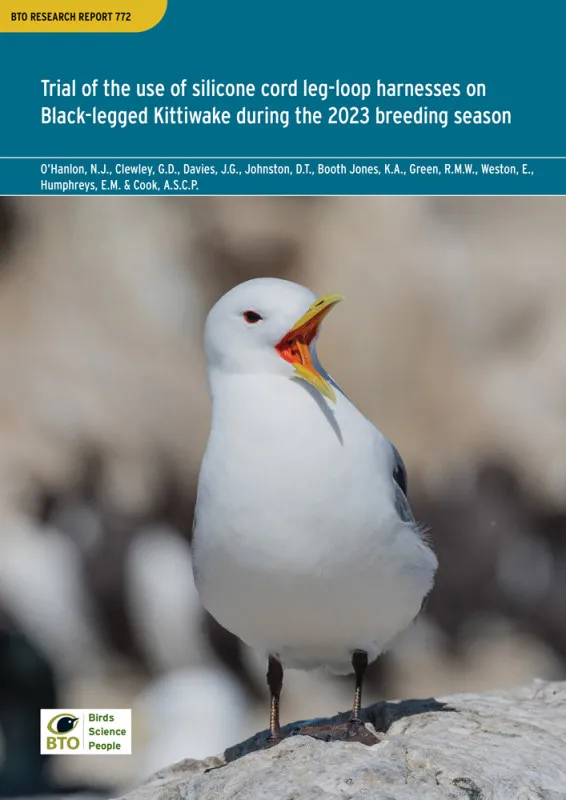
This report describes a follow-up field trial during the 2023 breeding season to assess the feasibility of using silicone cord for the leg-loop harness attachment of devices to Kittiwakes on a sample size of six individuals.
23.09.24
Reports
How effective has the management of Cockle and Mussel fisheries on The Wash estuary been in ensuring that there is sufficient food for birds?
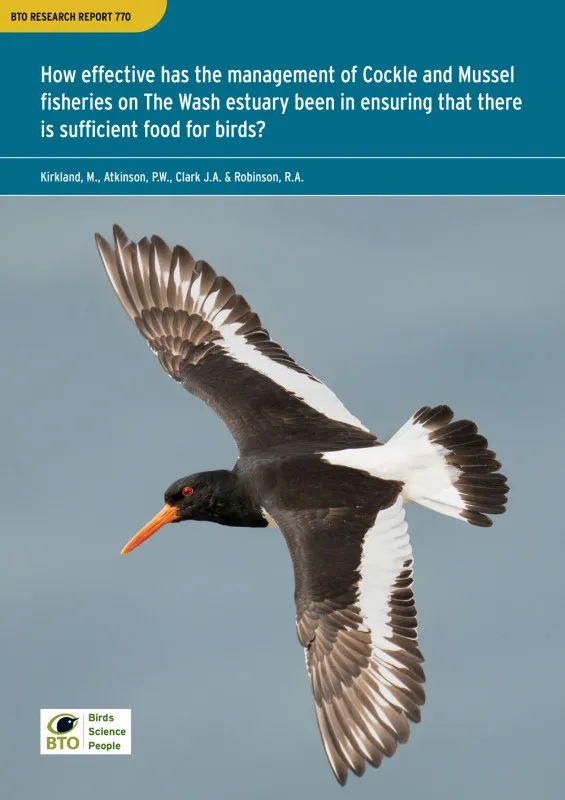
The Wash is England’s largest Special Protection Area, with Oystercatchers being a designated feature. During the winter, Oystercatchers rely heavily on Cockles and Blue Mussels for their food requirements, creating the potential for conflict with the human fisheries for these species.
10.07.24
Reports
Silvopasture Biodiversity – Beetles and Bats: providing the infrastructure and protocols that farmers can follow to participate in biodiversity monitoring using passive acoustic monitoring
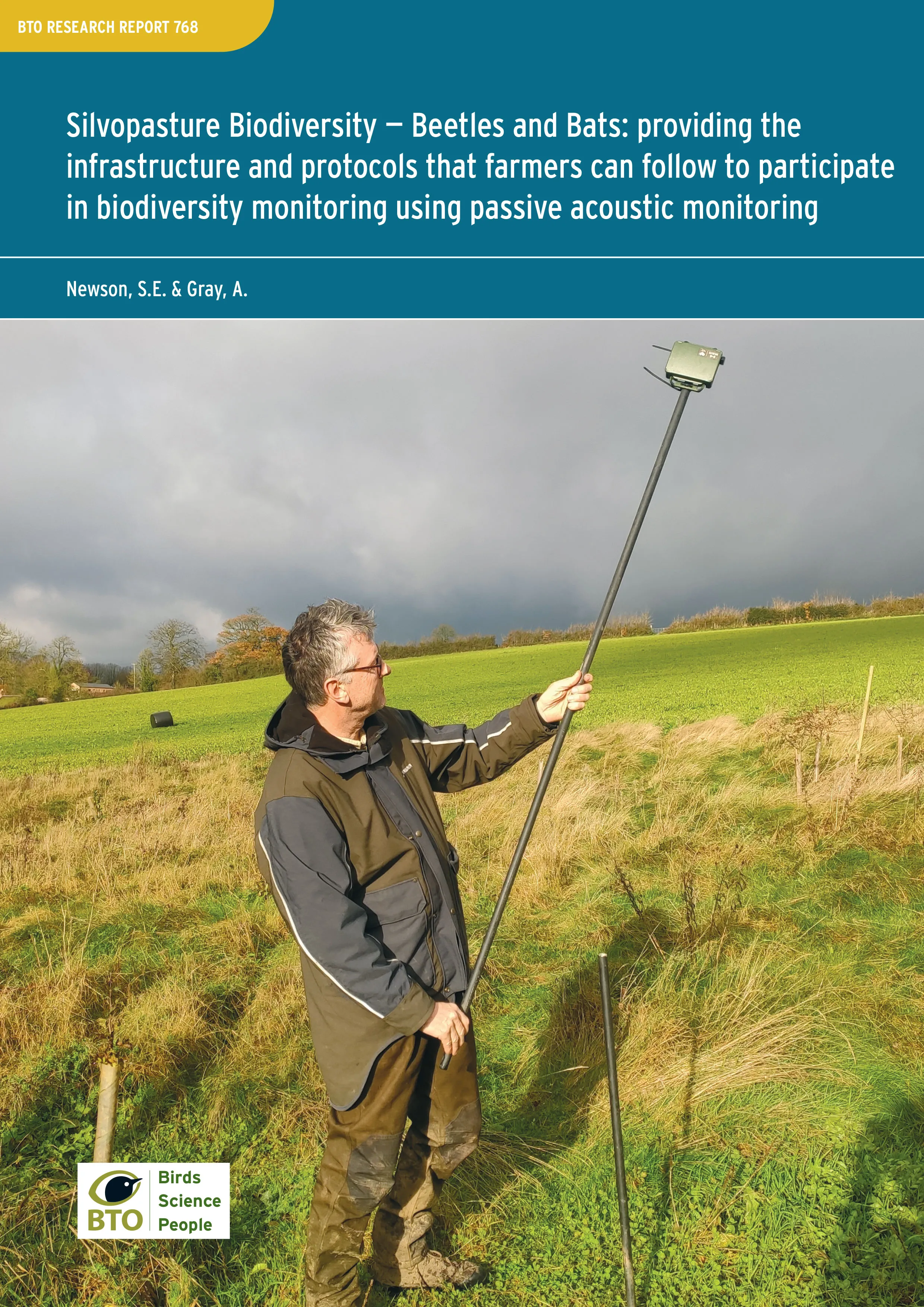
Working with the Devon silvopasture network, a survey and sampling protocol was devised that allowed farmers to deploy static acoustic bat detectors over a seven month survey season to provide baseline data for bats. This report provides an overview of the survey coverage and main results from 2023, to highlight what can be delivered now using passive acoustic monitoring, whilst providing the next steps and a vision for the future.
01.06.24
Reports
The Breeding Bird Survey 2023
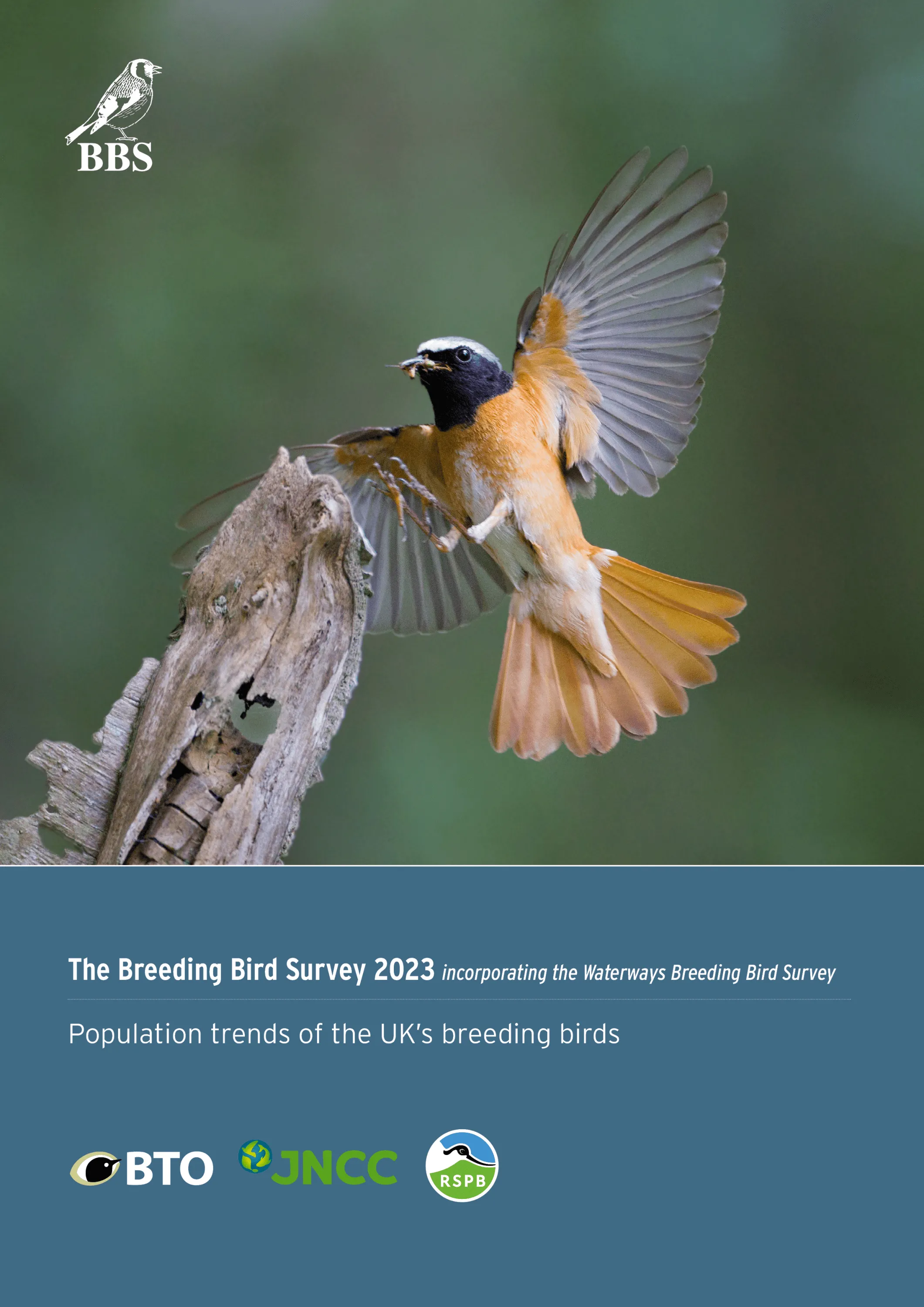
This is the 29th annual report of the BTO/JNCC/RSPB Breeding Bird Survey (BBS) and Waterways Breeding Bird Survey (WBBS), documenting the population trends of widespread UK breeding bird species during the periods 1994–2023 and 1998–2023 respectively.These are the main schemes for monitoring the population changes of the UK’s widespread breeding birds, providing an important indicator of the health of the countryside.The results are published annually as Official Statistics and used widely by Defra and the Statutory Nature Conservation Bodies (SNCBs, e.g. Natural England and NatureScot) to set priorities and to inform conservation action, and as the evidence base against which the UK’s biodiversity targets are measured.BBS data are also routinely used in research, with recent examples including peer-reviewed papers published in 2022 and 2024 which measured the efficacy of the UK’s network of protected areas in supporting wildlife.The 2023 Breeding Bird Survey Report celebrates the 30-year anniversary of fieldwork for the scheme, in particular the amazing commitment and dedication of its volunteers.It is a mixed picture for birds: Swift and Swallow show widespread decline, whereas some species are faring better, particularly in Scotland where species of scrub and woodland are doing better than in England.Download the 2023 report >Browse all editions of the Breeding Bird Survey Report >Press releasesUKNorthern IrelandScotlandWales
16.05.24
Reports
Waterbirds in the UK 2022/23
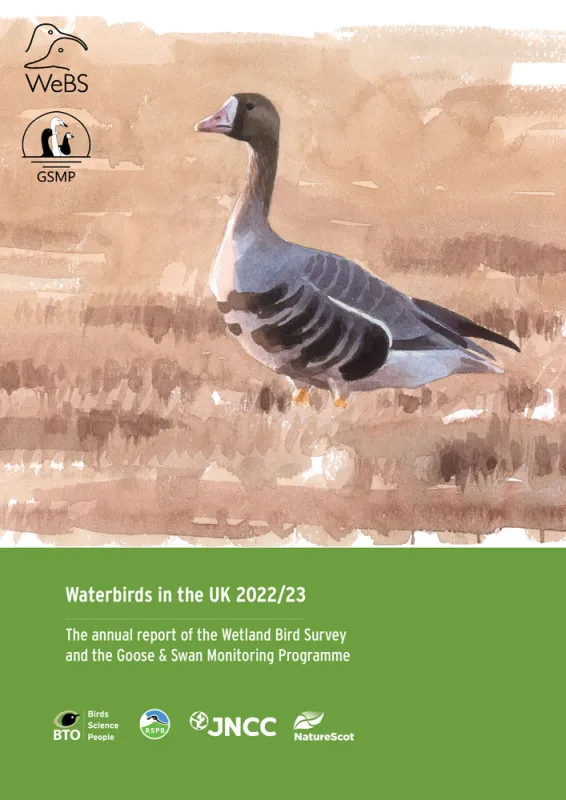
It provides a single, comprehensive source of information on the current status and distribution of waterbirds in the UK for those interested in the conservation of the populations of these species and the wetland sites they use.Data from this edition of Waterbirds in the UK provide further evidence that wintering ducks, geese, swans and waders are adapting to climate change by altering their migration.
25.04.24
Reports
Seabird population and demographic monitoring in the UK: a review and recommendations for future sampling
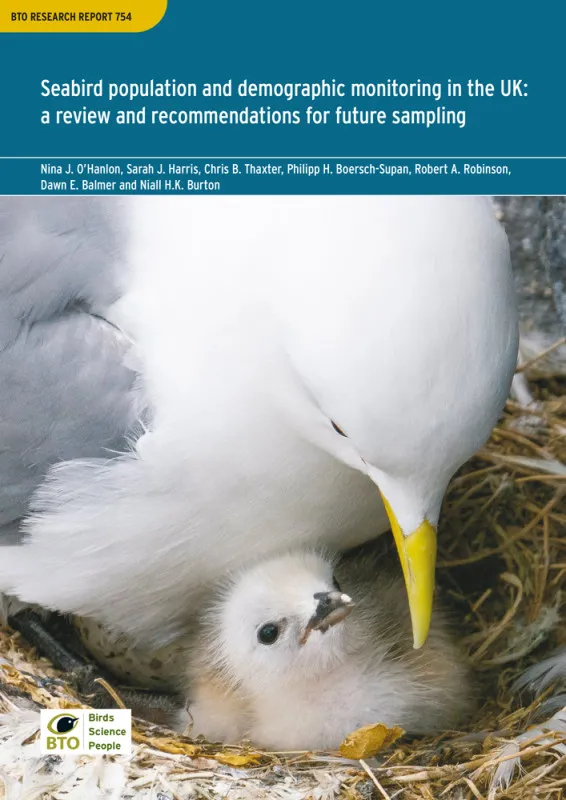
The Seabird Monitoring Programme, funded by the British Trust for Ornithology and Joint Nature Conservation Committee (JNCC), in association with the Royal Society for the Protection of Birds, aims to ensure that sample data on seabird breeding numbers and breeding productivity are collected both regionally and nationally, for 25 species of seabird that regularly breed in Britain and Ireland, to enable their conservation status to be assessed.
18.04.24
Reports